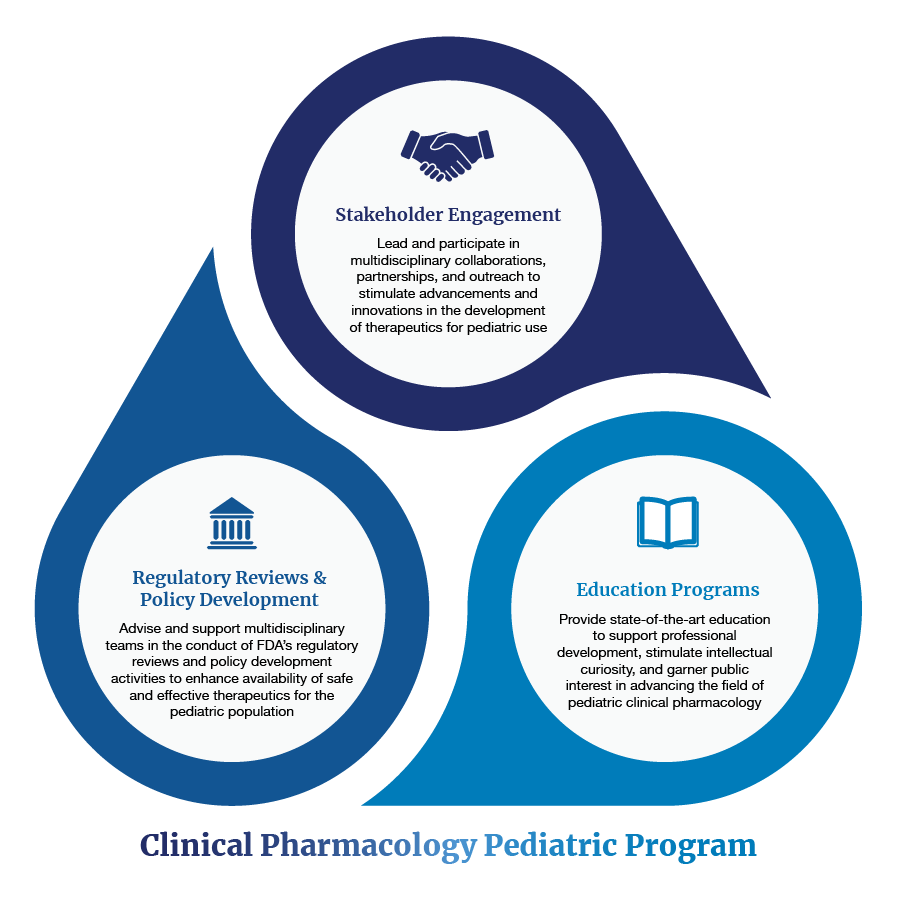FDA OCP Announces New Website About Clinical Pharmacology Pediatrics Program
FDA 临床药理学办公室宣布了关于临床药理学儿科项目的新网站
今天(2024年2月22日),临床药理学角(Clinical Pharmacology Corner)发布通知,FDA CDER下辖临床药理学办公室(OCP,Office of Clinical Pharmacology)宣布了一个新网站,名为:临床药理学儿科项目(Clinical Pharmacology Pediatrics Program)。该网站的目的是为了促进安全有效的新药和生物制品的开发,以优化儿科人群在成长各个阶段的健康和福祉。
FDA OCP的临床药理学儿科项目 包括一批具有儿科临床药理学、分子生物学和健康科学专业知识的监管科学家。该项目慧姐了多学科专家,促进临床药理学原理和工具的应用,以推动儿科人群新治疗药物和生物制品的开发。
该项目的重点领域,包括 利益相关方参与,监管审查和政策制定,以及教育项目。
利益相关方参与(Stakeholder Engagement)
领导并参与多学科合作、伙伴关系和外部活动,以激励儿科治疗药物的进步和创新。主要活动包括:
- 通过与儿科相关的研究、政策制定和同行评审的出版物,识别和解决科学知识中的关键差距;
- 与国内和国际合作伙伴分享有关前沿科学创新、简化治疗开发以及临床药理学和监管科学领域进步的监管见解和主题专业知识
- 让公众了解临床药理学计划,了解对儿科治疗发展的担忧,并鼓励参与研究
监管审查和政策制定(Regulatory Reviews and Policy Development)
- 为新药申请(NDA)和生物许可证申请(BLA)的监管审查提供咨询,以帮助确保儿科个体发育以及内在和外在因素对疾病、治疗反应和治疗剂量的潜在影响纳入儿科使用疗法的整体临床药理学评估;
- 审查初始儿科研究计划(iPSP),并参与到与儿童癌症相关的分子靶点相关的项目;
- 为制定监管指南文件提供临床药理学主题专业知识,以告知利益相关者FDA目前对与儿科临床药理学相关的问题或主题的看法;
- 领导并参与政策制定,帮助指导治疗开发和监管决策。
教育项目(Education Programs)
提供最先进的教育,以支持专业发展,激发求知欲,并吸引公众对推进儿科临床药理学领域的兴趣。
- 开发、开展和监督教育推广活动,包括研讨会、座谈会、会议、网络研讨会、讲座或研讨会系列、时事通讯和面向全球不同受众的演讲;
- 指导和参与教育计划,包括药学学生体验轮换;本科生、研究生和研究生奖学金;访问助理和访问科学家;和教职员工休假。
Promoting the development of safe and effective new drugs and biologics to optimize the health and wellbeing of the pediatric population across all stages of maturation and development.
Overview
The Clinical Pharmacology Pediatrics Program within the FDA’s Office of Clinical Pharmacology includes a cadre of regulatory scientists with expertise in pediatric clinical pharmacology, molecular biology, and health science. The program brings together multidisciplinary experts to promote the application of fundamental clinical pharmacology principles and tools to advance the development of new therapeutic drugs and biologics for the pediatric population.

Stakeholder Engagement
Lead and participate in multidisciplinary collaborations, partnerships, and outreach to stimulate advancements and innovations in the development of therapeutics for pediatric use.
Key activities include:
- Identify and address critical gaps in scientific knowledge through pediatric-related research, policy development, and peer-reviewed publications
- Share regulatory insights and subject matter expertise with national and international partners on cutting-edge scientific innovation, streamlining of therapeutic development, and advancements in the field of clinical pharmacology and regulatory science
- Keep the public inform of clinical pharmacology initiatives, understand concerns with therapeutic developments for pediatric use, and encourage participation in research
Regulatory Reviews and Policy Development
Advise and support multidisciplinary teams in the conduct of FDA’s regulatory reviews and policy development activities to enhance availability of safe and effective therapeutics for the pediatric population.
- Provide consultation for regulatory reviews of new drug applications (NDAs) and biological license applications (BLAs) to help ensure pediatric ontogeny as well as the potential effect of intrinsic and extrinsic factors on disease, treatment response, and therapeutic dosages are integrated into the overall clinical pharmacology assessments of therapeutics for pediatric use
- Review initial pediatric study plans (iPSPs) and engage in projects associated with molecular targets relevant to pediatric cancers
- Provide clinical pharmacology subject matter expertise for the development of regulatory guidance documents to inform stakeholders of FDA’s current thinking on issues or topics germane to pediatric clinical pharmacology
- Lead and participate in policy development to help guide therapeutic development and regulatory decision-making
Education Programs
Provide state-of-the-art education to support professional development, stimulate intellectual curiosity, and garner public interest in advancing the field of pediatric clinical pharmacology
- Develop, conduct, and oversee educational outreach activities including workshops, symposia, conferences, webinars, lecture or seminar series, newsletters, and presentations to diverse audiences on a global scale
- Direct and participate in educational programs including pharmacy student experiential rotation; undergraduate, graduate, and post-graduate fellowships; visiting associates and visiting scientist; and faculty sabbaticals
为帮助审核人员更快处理,请填写举报原因:
为帮助审核人员更快处理,请填写举报原因:
